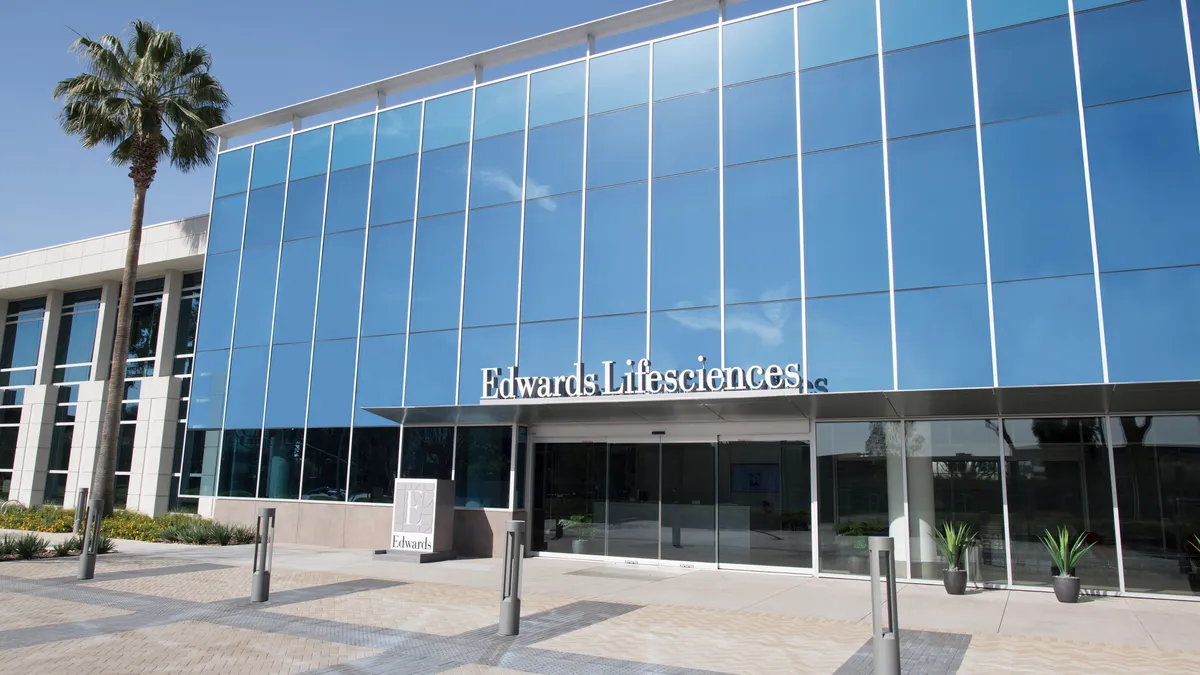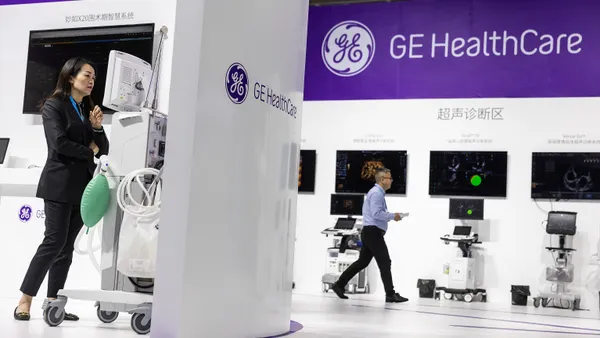Dive Brief:
-
FDA has approved Edwards Lifesciences’ Sapien 3 transcatheter heart valve for use in a new population of pediatric and adult patients.
-
The premarket approval allows Edwards to market its device in patients with a dysfunctional right ventricular outflow tract conduit or a dysfunctional bioprosthetic valve in the pulmonic position.
-
Patients who undergo surgical repair of congenital heart defects can suffer from such dysfunctions, leading to negative outcomes including pulmonary regurgitation and stenosis.
Dive Insight:
Edwards began assessing the effectiveness of its Sapien 3 heart valve in the target population in 2016 and reported data from the clinical trial earlier this year. The study linked the device to a one-year rate of transcatheter heart valve dysfunction of 4.3%, good enough for the trial to meet its primary endpoint. No patients required right ventricular outflow tract reintervention in the year after treatment.
The trial also validated the performance and safety of the device. Surgeons successfully implanted Sapien 3 in all except one of the patients. None of the subjects suffered from any of the tracked adverse events, which included all-cause death and device-related endocarditis after one year. However, FDA's summary of safety and effectiveness data included stroke and death as potential adverse effects associated with the use of the device.
Nonetheless, FDA approved Sapien 3 in the population targeted in the clinical trial on the strength of the data, allowing Edwards to compete against a range of treatment options currently available to the patients. In a discussion of the alternatives to Sapien 3, the agency listed balloon valvuloplasty, surgical replacement with a homograft, valved conduit or bioprosthetic valve, and implantation of another transcatheter pulmonary valve as the options available to patients. BD serves the balloon valvuloplasty market with its True Dilatation device.
Edwards’ entry into the market is part of an ongoing effort to expand the addressable population for Sapien 3. Earlier this year, the company received approval for the device in high-risk patients with severe aortic stenosis in China. Edwards expects sales in the country to grow slowly, reflecting the availability of rival devices and lack of insurance coverage, but the long-term opportunity could be significant.
Growth in China and the new FDA-approved indication could help mitigate pressures Edward faces in its established markets and patient populations. While Edwards’ sales held up better than expected in the early months of the pandemic, the slowdown in referrals of new patients could mean demand is relatively weak over the second half of the year.











